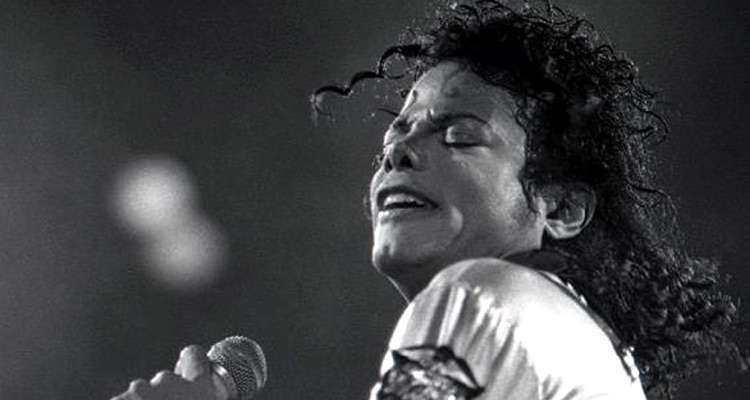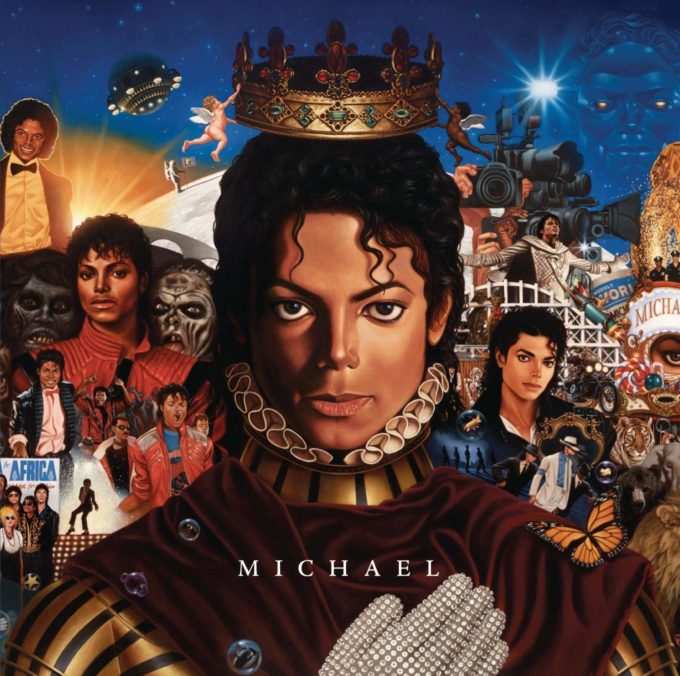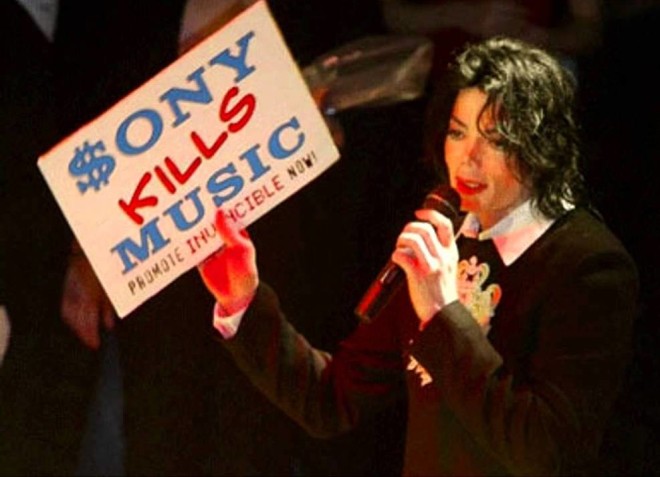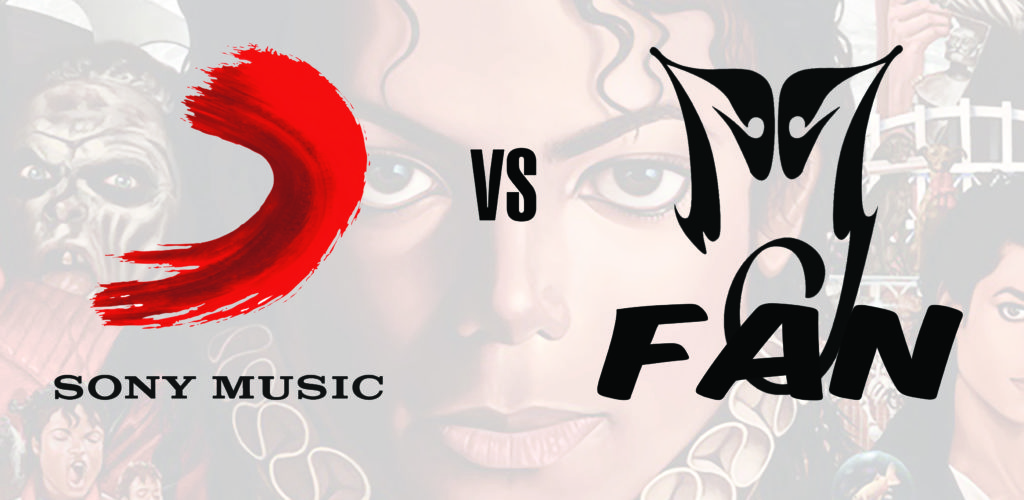http://www.damienshields.com/exclusive- ... -released/
EXCLUSIVE: Forensic report concludes posthumous Michael Jackson album DID include FAKE songs, sung by an impostor!
BY DAMIEN SHIELDS
THE VOCALIST on three allegedly fake Michael Jackson tracks sang in the wrong dialect, was unable to control fundamental aspects of his singing voice including vibrato, and even mispronounced Jackson’s name, according to a bombshell expert report.
The document, obtained exclusively by DamienShields.com, was compiled by forensic audiologist Dr. George Papcun, PhD, who put the tracks under the microscope and reached the disturbing conclusion that the songs were fakes, ultimately laying the foundation for a class action consumer fraud lawsuit.
The 2014 lawsuit was filed by fan Vera Serova who alleged that three songs – “Breaking News,” “Monster,” and “Keep Your Head Up” – released by Sony Music and the Michael Jackson Estate executors on Jackson’s first posthumous album, Michael, were forgeries. The three songs, known as the ‘Cascio tracks’, have long been a sore spot for both sides. Sony and the Estate initially defended the authenticity of the songs, while members of the Jackson family and thousands of fans and claimed the songs were fakes – sung by an impostor.
The 41-page report detailing Dr. Papcun’s findings, revealed for the first time today, was the result of several months of careful scientific comparison of the Cascio tracks with Jackson’s legitimate recordings. The goal: to determine whether the Cascio tracks were sung by Jackson.
When Serova first contacted Dr. Papcun to propose such an analysis, he thought she was wasting his time. According to an email sent by Dr. Papcun to Serova several months before the lawsuit was filed, the ultimate conclusion that the songs were forgeries surprised the expert. He wrote:
“When I first accepted this project, I thought there was a good chance you and your colleagues were not serious and this case had no merit. Obviously, I have changed my mind completely… I have come to the opinion that the three songs are not, in fact, the voice of Michael Jackson.”
A closer look at Dr. Papcun’s report reveals a combination of three analytical approaches. First, the expert looked at the dialect of the vocalist on the Cascio tracks, comparing his pronunciation of certain words with audio of Jackson repeatedly singing the same words throughout four decades of legitimate recordings. Interestingly, Dr. Papcun found the dialect in the Cascio tracks to be more consistent with Jason Malachi – the sound-alike long believed to be the real singer of the Cascio songs – than with Jackson.
Dr. Papcun identified that the vocalist on the Cascio tracks had a ‘glottal stop’ – meaning they did not pronounce Ts in the middle of some words. Dr. Papcun gave the example of the Cascio track vocalist singing the word “waiting” as “wai’in” – something he said Jackson never did. Dr. Papcun wrote:
“A review of Jackson’s recordings over his entire career, spanning 39 years, shows that he does not use the glottal stop allophone in this position. By contrast, the singer Jason Malachi uses the glottal stop routinely in this position. The glottal stop allophone in this position is characteristic of the speech of Brooklyn, New York. Quoting Malachi’s bio: “I was born in Silver Spring, Maryland; however, my family is originally from Brooklyn, New York.” Assuming he learned to talk from his parents, or at least was influenced by them, the glottal stop in this position would be expected from him. However that may be, the fact is he uses it, whereas Michael Jackson does not.”
Ironically, according to the report, the vocalist on the songs, who Cascio and Porte insist is Jackson, also fails to pronounce the name “Jackson” correctly. In “Breaking News,” the vocalist repeatedly sings the name ‘Michael Jackson’ – but Dr Papcun compared the recording with Jackson’s pronunciation of his own name in clips spanning 20 years, from 1983 to 2003, and found no match:
“The pronunciation of the name “Jackson” in Breaking News (as [sEn]) differs from the pronunciations of “Jackson” as spoken by Michael Jackson in interviews over many years.”
Next, Dr. Papcun’s report examines vibrato characteristics in Cascio track “Breaking News,” demonstrating its differences from the vibrato in known Jackson recordings. In singing, vibrato is the pulsating change of pitch that occurs at the end of a note through variations in the larynx. Again, Dr. Papcun found no consistencies between the vibrato on the Cascio tracks and known Jackson recordings. He did however note that – as with the dialect – the vibrato frequency in the Cascio tracks is more consistent with that of Jason Malachi. He states:
“Acoustic analysis shows that the vibrato in Breaking News is faster than the vibrato in a sample of Jackson recordings. Moreover, the vibrato in a sample of known Jackson recordings is smoother and more closely adheres to the note being sung. The vibrato in a sample of Malachi recordings as well as the vibrato in Breaking News is more frequent than the vibrato in known Jackson recordings.”
Dr. Papcun focuses in on Jackson’s vibrato in “Speechless” (Invincible, 2001) noting that the curves are “dramatically smoother” than those in “Breaking News,” and “much better and more consistently sustained.” According to Dr. Papcun, Jackson’s vibrato rate is “essentially what is regarded as ideal according to prior music commentary.”
Finally, the report highlights significant statistical difference of vibrato usage in the middle of the song lines and on line endings between undisputed Jackson recordings and the Cascio tracks.
Additional key statistic drawn from this analysis include:
The singer of the Cascio tracks uses vibrato 100% the time, on each and every song. However, in 22% of the Jackson recordings analysed, the King of Pop does do NOT use vibrato at all during verses.
The singer of the Cascio tracks changes his vibrato pattern a whopping 83% of the time, while Jackson’s vibrato pattern changes in the verses only 9% of the time.
The singer of the Cascio tracks uses vibrato in the middle of a line 58% of the time. Again, Jackson only does this in 9% of the known and undisputed recordings that were analysed.
Citing the differences in dialect, vibrato, tremolo and vocal control on the Cascio tracks, Dr. Papcun “rejected the hypothesis” that Jackson was the vocalist.
Dr Papcun’s resume certainly looks impressive – he has worked for the CIA, the National Security Agency and the US Secret Service, and served as an audio expert in high profile cases including the Rodney King beating, the murder of Jon Benet Ramsey and the Patty Hearst kidnapping. His specialisms include checking whether audio has been manipulated, proving the identities of suspects through speech analysis, and helping to organise ‘voice line-ups’ in criminal cases. But of course, Dr. Papcun’s conclusions remain his expert opinion.
When concerns were first raised about the authenticity of the Cascio tracks in 2010, the Jackson Estate’s attorney Howard Weitzman claimed the Estate and Sony Music had hired their own forensic experts, one of whom had supposedly performed ‘waveform analysis’ and concluded that the voice was Jackson’s. However neither the names or credentials of their experts, nor their written conclusions have ever been made public.
In any event, Dr. Papcun claims in his report that the analyses he has performed “are very much more detailed and accurate than waveform analysis.” It certainly looks convincing.
The lawsuit regarding the Cascio tracks and Michael album made media headlines recently when it was reported that Sony and the Estate had conceded in court that the three songs in question may be fakes after all. Sony responded with a statement denying such a concession had been made, however one of Sony’s lawyers, Andrew Demko, stated the following in a December 2016 court hearing:
“We are submitting now it may have turned out not to be [Michael Jackson].”
Zia Modabber, also representing the corporations, stated that Sony and the Estate had become innocent victims of the fraud themselves when they were duped by Eddie Cascio and James Porte – the little-known producers who sold the songs to them as Jackson’s. However, Modabber also insisted that even if the vocals were not Jackson’s, Sony and the Estate had done nothing wrong by saying they were.
Judge Ann I. Jones of the Los Angeles Superior Court took issue with this position, stating:
“What is problematic is that you are ripping people off under your admitted facts.”
Modabber insisted the Constitution allowed Sony and the Estate to lie to consumers:
“If we ripped people off and it’s noncommercial speech, they lose under the statutes; that is just the law.”
Judge Jones ruled in favour of plaintiff Serova and ordered the corporations to face the music, which they appealed.
Then, in a surprising development just last week (Aug 28, 2018), the California Court of Appeal agreed with Sony and the Jackson Estate and removed them from the case, ruling that naming Michael Jackson as the vocalist on the album cover and in a video advertisement was not misleading to consumers. Rather, the court ruled, it was merely their contribution to a public debate, making it ‘non-commercial’ artistic free speech, protected by the First Amendment.
The fraud lawsuit continues against the producers of the songs, Eddie Cascio and James Porte. On top of the “comprehensive assessment” by Dr. Papcun, which concludes the songs are fake, Serova’s complaint lists several other discoveries supporting her position, including the inconsistent timeline of the recording, lack of Jackson’s signature hand claps, finger snaps and foot stomps in the raw isolated vocal tracks, and Cascio’s incredible claim that all evidence of the origins of the songs had been destroyed.
Regarding Sony and the Estate’s dismissal from the case, Serova has a few options. She can leave Sony and the Estate alone and continue the fraud case against Cascio and Porte. In this case Sony can continue selling the songs as ‘Michael Jackson’ regardless of the outcome of the fraud case. Alternatively, Serova can petition the Court of Appeal for rehearing. The petition for rehearing is granted or denied within 30 days of the court’s opinion, after which time it becomes final and can be appealed to the California Supreme Court, California’s highest authority. The Supreme Court grants review to a very small percentage of cases, but in important matters like this it’s not impossible.
Also, in the coming months I will be releasing Faking Michael—an investigative podcast series chronicling my eight-year quest for the truth about the Cascio tracks and the Michael album as I embarked on a personal mission to find out once and for all where the songs truly came from, and how they ended up on an official Michael Jackson album.
The pieces of evidence cited in this article are just the tip of the iceberg. Throughout the course of the podcast series I will detail the findings of my investigation, drawing on hundreds of hours of exclusive interviews with many of those closest to the controversy, thousands of pages of correspondence and official records, and never-before-heard evidence that has lead to shocking breakthrough discoveries. In doing so, I will endeavour to put the countless of pieces of this puzzle into place, and reveal the complete picture for the very first time.
LISTEN AND SUBSCRIBE NOW:
Apple Podcasts:
https://itunes.apple.com/au/podcast/fak ... 72710?mt=2
Spotify:
https://open.spotify.com/episode/0J39NH ... XC9nS?nd=1
Android:
http://subscribeonandroid.com/fakingmic ... ed/podcast?
YouTube:
https://www.youtube.com/watch?v=NF8LLcUSMWA
Soundcloud:
https://soundcloud.com/user-572776729/trailer







